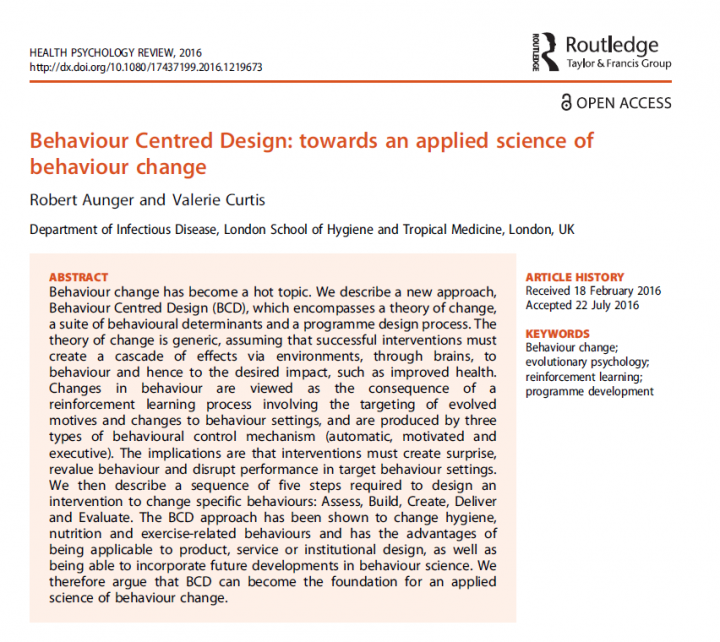Behaviour Centred Design: towards an applied science of behaviour change Aunger, R., Curtis, V. (2016)
Bibliographic information
Aunger, R., Curtis, V. (2016). Behaviour Centred Design: towards an applied science of behaviour change Health Psychology Review
Filter / Tags
Behaviour change (WG13)
Downloads
Behaviour Centred Design: towards an applied science of behaviour change
Type: application/pdf
Size: 2.01 MB

